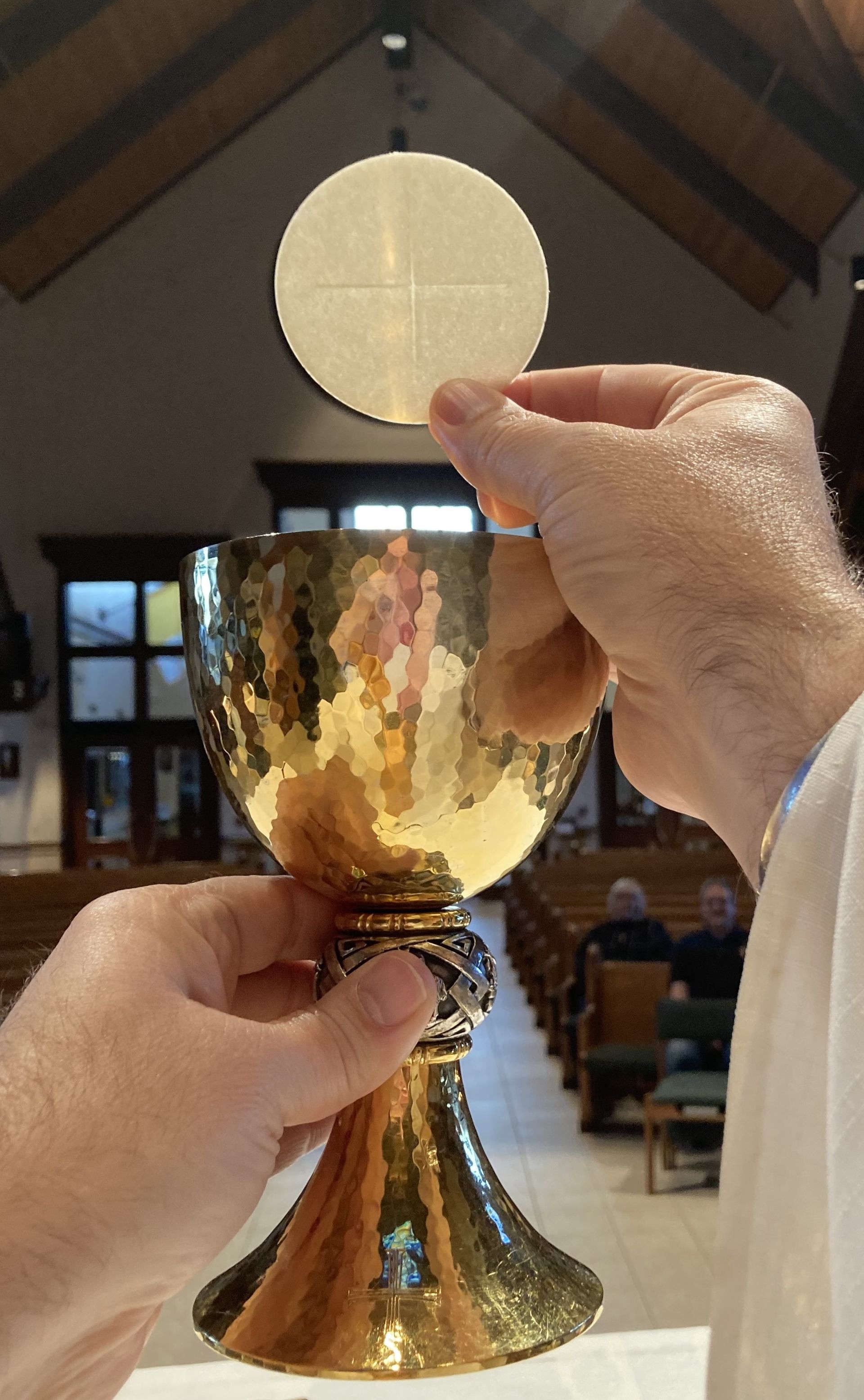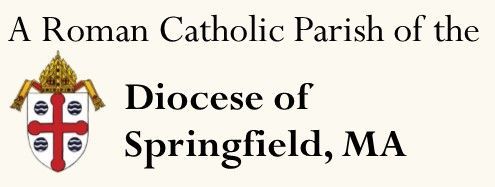Eucharist / Holy Communion
Jesus said to them,
“I am the bread of life;
the one who comes to Me
will not be hungry,
and the one who believes in Me
will never be thirsty. - John 6:35
Children celebrate First Holy Communion in May after a two-year preparation in 1st & 2nd grade religious education classes.
Special arrangements can be made for older children or children with special needs by calling the Faith Formation office at 413-323-6272 x1.

WHAT IS THE SACRAMENT OF EUCHARIST?
The Sacrament of Eucharist is one of three “Sacraments of Initiation” – the others being Baptism and Confirmation. The initial reception is celebrated as First Holy Communion. The faithful are encouraged to frequently partake of this sacrament as it is “food for the journey.”
Jesus said: “I am the living bread that came down from heaven; if anyone eats of this bread, he will live forever; …he who eats my flesh and drinks my blood has eternal life and… abides in me, and I in him.” (Jn 6:51, 54, 56)
The Eucharist is the heart and the summit of the Church’s life, for in it Christ associates his Church and all her members with his sacrifice of praise and thanksgiving offered once for all on the cross to his Father; by this sacrifice he pours out the graces of salvation on his Body which is the Church.
Christ’s presence is veiled in the Bread and Wine - By the consecration, the transubstantiation of the bread and wine into the Body, Blood, Soul, and Divinity of Christ is brought about. Under the consecrated species Christ himself, living and glorious, is present in a true, real, and substantial manner: His Body and His Blood, with his soul and his divinity (cf. Council of Trent: DS 1640;1651)
Communion with the Body and Blood of Christ increases the communicant’s union with the Lord, forgives his venial sins, and preserves him from grave sins. Receiving this sacrament strengthens the bonds of charity between the communicant and Christ, it also reinforces the unity of the Church as the Mystical Body of Christ.
While the Church recommends that the faithful receive Holy Communion each time they participate in the celebration of the Eucharist; she obliges them to do so at least once a year. Furthermore, anyone aware of having sinned mortally must not receive communion without having received absolution in the sacrament of Penance & Reconciliation.
Participation in the Holy Sacrifice identifies us with His Heart,
sustains our strength along the pilgrimage of this life,
makes us long for eternal life,
and unites us even now to the Church in Heaven,
the Blessed Virgin Mary and all the saints.
This Sacrament is also called:
The Lord’s Supper, The Breaking of Bread, The Eucharistic Assembly, The Memorial of the Lord’s Passion and Resurrection,
The Holy Sacrifice, The Holy and Divine Liturgy, The Sacred Mysteries, The Most Blessed Sacrament, Holy Communion,
The Bread of Angels, Bread from Heaven, Medicine of Immortality, Viaticum, and Holy Mass.
To read more: Catechism of the Catholic Church (1322-1419)
